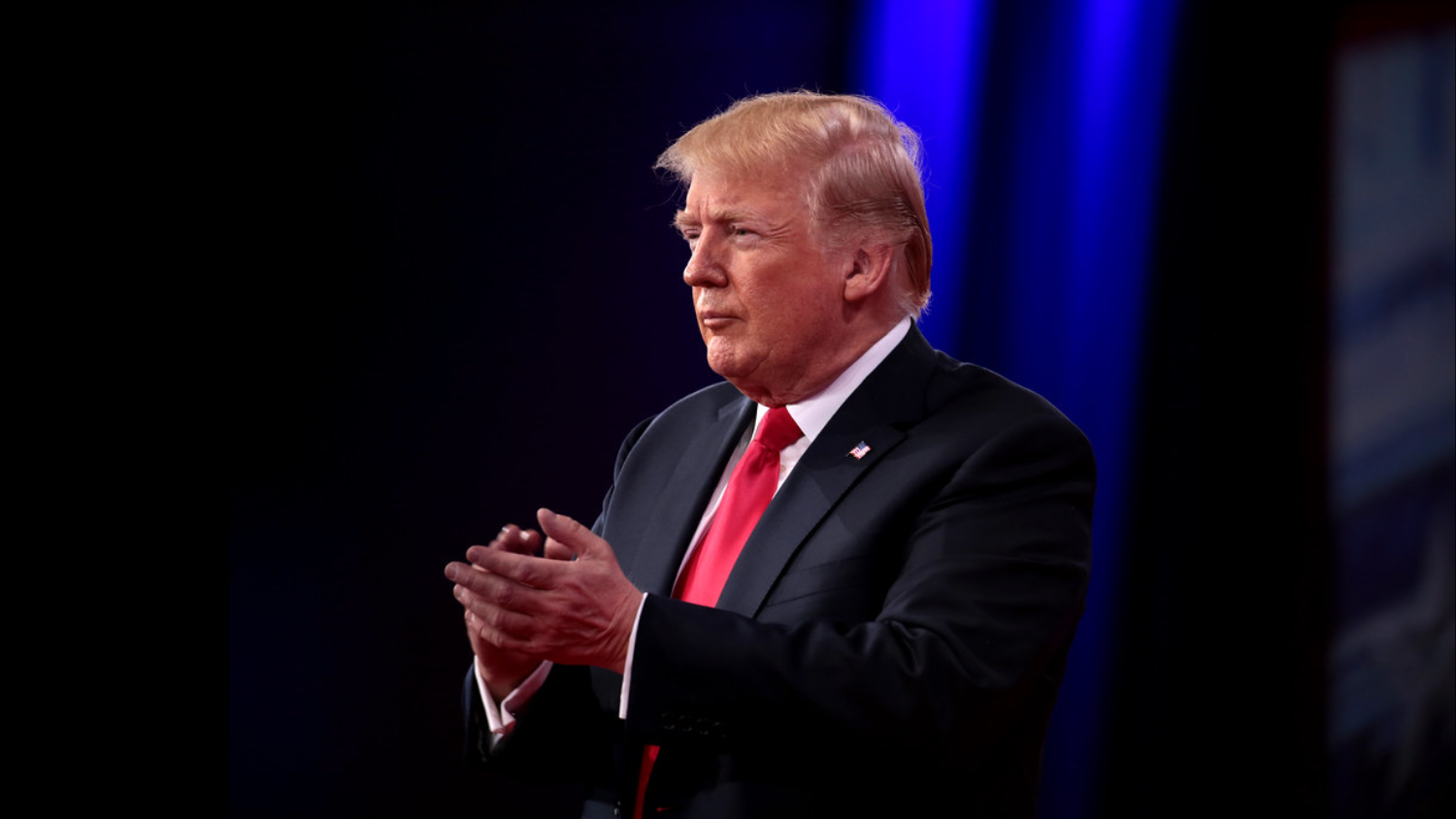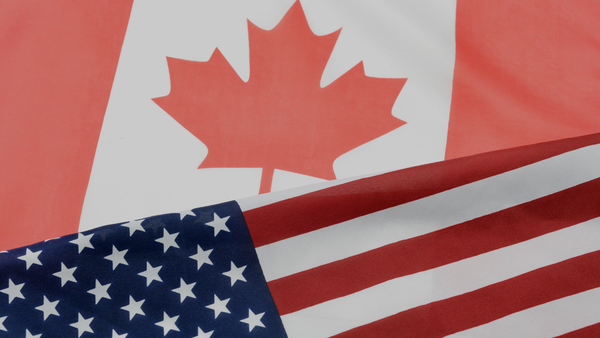How a Trump Victory Could Reshape the Global Market Landscape: A Comprehensive Analysis

As the U.S. presidential election approaches, the potential re-election of Donald Trump could significantly impact global financial markets, capital-raising dynamics, and geopolitical relations. Building on existing analysis, this piece integrates deeper insights into fiscal policies, sector-specific implications, and strategies for Canadian investors and companies. It outlines the possible changes a Trump victory could bring to markets in Canada and globally, providing a holistic outlook on how to navigate a rapidly evolving landscape.
Economic and Fiscal Policy Outlook
Trump’s policies are expected to echo the mix of fiscal expansion, deregulation, and protectionist trade measures seen during his first term. These policies could create opportunities in select sectors but also pose significant risks, particularly for investors with international exposure.
Aggressive Tax Cuts and Debt Expansion
A potential Trump administration would likely push for more significant tax cuts than the 2017 Tax Cuts and Jobs Act, boosting corporate earnings and short-term economic growth. However, these measures could also drive U.S. debt levels beyond 116% of GDP, creating long-term fiscal challenges and a new set of risks.
- Inflation Risks: The increased debt, combined with proposed government spending, could accelerate inflation. This scenario might compel the Federal Reserve to adopt a more aggressive stance, leading to rising interest rates that affect both equity and bond markets.
- Currency Volatility: The U.S. dollar may strengthen initially due to higher rates and anticipated growth but could weaken over time due to trade disputes and mounting debt.
Sector-Specific Impacts and Investment Opportunities
The impact of Trump’s policies on different sectors would vary, presenting diverse opportunities and challenges for both U.S. and Canadian markets:
Energy and Natural Resources
- Pro-Fossil-Fuel Agenda: Trump’s policies would likely favor increased domestic fossil fuel production, with relaxed regulations and expanded drilling rights. This could boost traditional energy companies in the short run, but global oil prices might be pressured by oversupply.
- Implications for Canada: Canadian energy firms, especially those in the oil sands and pipeline sectors, could benefit from a pro-fossil-fuel stance and improved approval processes for cross-border infrastructure. However, volatility in global oil prices could counteract these benefits, requiring strategic management of risks.
Technology and Innovation
- Corporate Tax Cuts: The tech sector could benefit from corporate tax reductions, which might lead to stock buybacks, M&A activity, and overall improved margins. On the other hand, antitrust scrutiny and potential restrictions on foreign talent could present risks, particularly for sectors like AI and quantum computing.
- Impact on Canadian Tech: Canada’s tech sector, which heavily relies on skilled immigration, might face headwinds if Trump’s restrictive immigration policies are reinstated. Companies must consider alternative strategies for talent acquisition and retention to sustain growth.
Manufacturing and Trade-Sensitive Industries
- “America First” Policies: Manufacturing could see short-term benefits from protectionist measures aimed at reshoring production. This may favor U.S.-based manufacturers but could challenge Canadian suppliers integrated into North American supply chains.
- Automotive Sector: NAFTA renegotiations or tariff implementations could disrupt Canadian auto manufacturers. Firms in this sector must reassess their production strategies and prepare for potential supply chain interruptions.
Financial Sector
- Lower Corporate Taxes: Trump’s corporate tax policies could boost profitability for banks and financial services firms, particularly those with significant domestic exposure. Canadian banks with substantial U.S. operations could benefit from increased earnings.
- Interest Rate Uncertainty: Rising rates, driven by inflationary pressures, could initially benefit financial stocks. However, prolonged rate hikes might increase credit risk and leverage, particularly for investment-grade debt.
Global Economic Relations and Geopolitical Landscape
Trump’s foreign policy could reshape trade relations, influencing global supply chains and geopolitical stability:
Trade Policy and Global Supply Chains
Trump’s hardline stance on trade, especially with China, could reignite trade wars, disrupt global supply chains, and affect emerging markets. This could present risks to companies with cross-border operations or dependencies on international markets.
Impact on Canadian Trade: Canada’s reliance on the U.S. for exports makes it vulnerable to U.S. protectionist measures. Canadian firms should diversify export markets and reevaluate supply chains to mitigate potential trade shocks.
Defense and Geopolitical Tensions
- Military Spending: An increase in defense spending under Trump could benefit defense and cybersecurity sectors, presenting opportunities for Canadian defense firms. However, heightened geopolitical risks could introduce broader market volatility.
- Currency Markets and Exchange Rates: A more isolationist U.S. trade policy could create currency volatility, affecting the Canadian dollar, which is sensitive to trade dynamics and oil prices. Hedging strategies should be considered by Canadian investors to navigate potential fluctuations.
Implications for Canadian Investors and Capital Markets
Given Canada’s economic ties and close proximity to the U.S., Canadian investors and firms need to navigate Trump’s potential policies carefully:
Capital-Raising Strategies
- Cross-Border Listings: Canadian companies seeking to list on U.S. exchanges like NASDAQ or NYSE could benefit from deregulation and increased liquidity. Sectors aligned with Trump’s agenda, such as energy, defense, and tech, may attract investor interest.
- Volatility and Timing: Market volatility and rising rates could complicate IPO valuations, making timing critical for successful capital raising. Companies must adopt a proactive approach, tailoring their strategies to leverage periods of heightened investor sentiment.
Strategic Adjustments for Canadian Investors
- Defensive Positioning: Given anticipated market volatility, investors should emphasize sectors like utilities, consumer staples, and REITs, which traditionally perform well during periods of uncertainty.
- Currency Hedging: Hedging exposure to the U.S. dollar could mitigate potential risks from currency fluctuations. Investing in U.S. assets might offer protection if the dollar remains strong in the short run.
Private Equity and M&A Opportunities
- Increased M&A Activity: Deregulated sectors could see heightened private equity and venture capital activity, driven by lower tax burdens and reduced compliance costs. However, cross-border M&A might face challenges due to intensified scrutiny of foreign investments.
Investment Strategies and Market Dynamics
Given the potential volatility under a Trump presidency, investors should prioritize flexibility and diversification:
Sector Rotation and Defensive Assets
Investors should consider rotating into defensive sectors like utilities and consumer staples. Exposure to commodities, particularly oil and metals, could benefit from Trump’s pro-fossil-fuel agenda.
- Equity Allocations: While growth sectors like tech and financials may offer short-term gains, a broader allocation to stable, dividend-paying stocks could help manage volatility.
- Fixed-Income and Credit Markets: Rising inflation and rates could challenge bond markets, particularly for investment-grade bonds. High-yield bonds might benefit from a growth-oriented agenda, but credit risks will need careful evaluation.
- Real Assets and Alternatives: Real estate and infrastructure investments could benefit from Trump’s deregulation efforts, but higher rates could limit returns. Real estate investors, particularly in Canada, should monitor U.S. tax reforms and interest rate changes.
Conclusion
A Trump victory in 2024 would likely usher in a period of significant change and potential volatility across global financial markets. While certain sectors and companies may benefit from proposed policies, the overall economic landscape could become more complex and unpredictable. For Canadian investors and companies, the key to success will be flexibility and thorough analysis. Strategies should be adaptable to rapidly changing economic conditions, regulatory environments, and global trade dynamics. Diversification across sectors and geographies will be crucial to mitigate risks associated with policy shifts and geopolitical tensions. As we approach the election, market participants should closely monitor policy proposals, economic indicators, and global reactions to potential outcomes. The ability to quickly adjust strategies during the transmission mechanism in response to new information will be critical in capitalizing on opportunities and managing risks in what promises to be a dynamic and challenging market environment.





